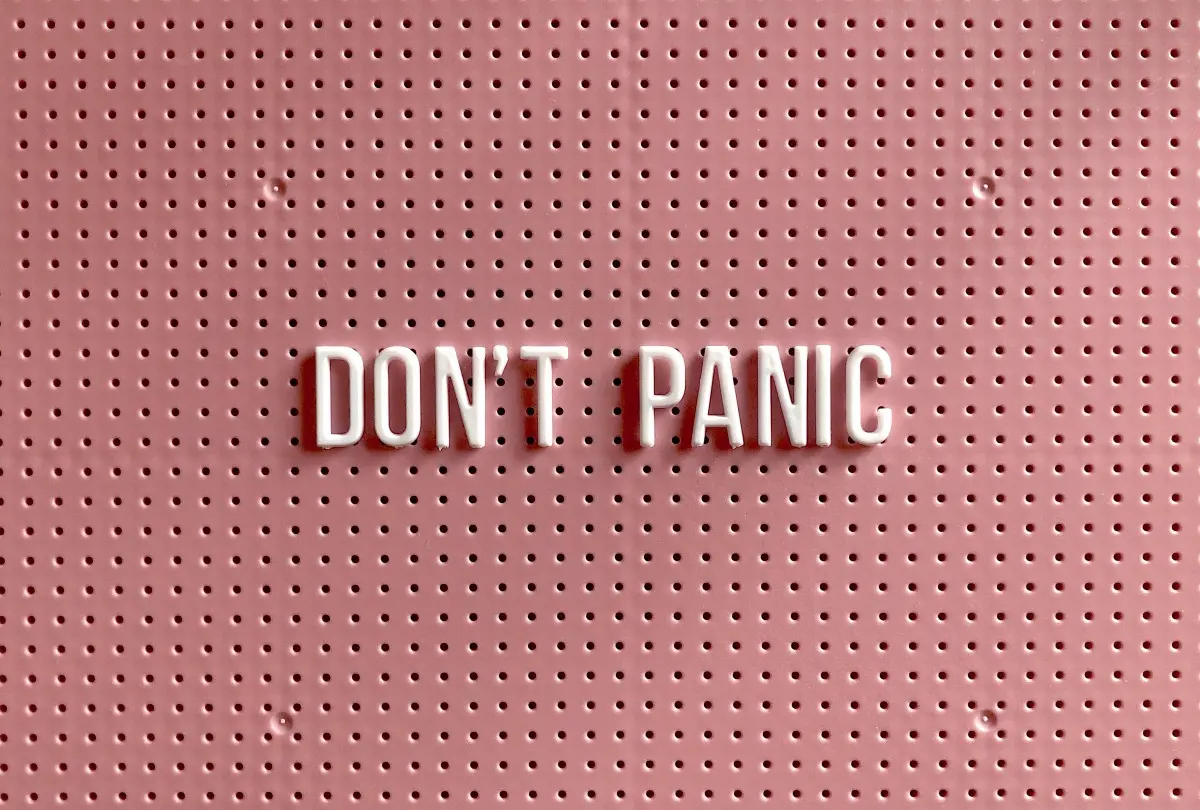
A panic disorder is not the same as anxiety. Although anxiety can be severe, a panic disorder is even more debilitating. You aren’t only thinking of fear but feeling it physically. Maybe you have heart palpitations, perhaps you’re sweating, or are struggling to breathe. Sure, this sounds like an anxiety attack, but when it occurs at random times without a trigger, it becomes a panic disorder. When you begin to have anxiety about having another attack, it gets in the way of your living your life. Without treatment, you can suffer in school, work, and socializing.
If you experience a panic attack before getting on a flight or doing a presentation, you most likely don’t have a panic disorder. A panic disorder is present when these attacks come on randomly and often.
Rather than a constant, slowly progressing fear, panic attacks are described as sudden waves of fear even without any danger or triggers present. These attacks are often so intense they can be confused for a heart attack. People will experience tingling, sweating, and a rapid heart rate, leading to even more panic.
For people with panic disorders, the fear of having another attack often significantly impacts their lives. They may change their plans and way of living to reduce having a panic attack or to ensure they are somewhere safe if they do. Panic attacks can happen a few times a year, a couple of times a month, or even multiple times a day. This sudden feeling of no control over yourself or your body isn’t just mental but very often has physical symptoms as well, such as:
When these symptoms get bad enough, many people may avoid leaving their homes altogether. An untreated panic disorder can quickly lead to agoraphobia, the fear of unfamiliar environments, or where someone feels they have little or no control. This can lead to job loss, relationship tensions, and substance abuse. It can quickly become a vicious cycle. Fear leads to panic, and a panic attack leads to fear of another.
If you’ve experienced panic attacks that impede your ability to function in your everyday life, seeking help is the next logical step. Having anxiety and panic attacks is nothing to be ashamed of. Panic disorders can be genetic, biological, and have links to stress and other environmental factors. Having a panic attack is like a false alarm going off within you. Typically, you would have these sensations during a truly dangerous situation, but your fight or flight instincts are not lining up with the situation at hand. This is treatable, however.
By speaking with a mental health professional, they can help determine if you have a panic disorder. They will discuss your history, symptoms, and your physical health. To provide a proper diagnosis, your doctor will have you fill out a psychological assessment, answer questions about your life, and discuss your use of drugs or alcohol. From there, to rule out other causes, many doctors will also do a physical exam or blood work.
Generally, a diagnosis of a panic disorder is treated with medication and therapy. It is essential to discuss your comfort zone, what you’d like to try, and discuss all the options with your doctor so you can decide on the right plan.
Once you’ve received a diagnosis, you can start managing your symptoms by working with a mental health professional. Learning about anxiety and panic disorders can offer a lot of solace during this time. Understanding what leads to these feelings can help you to control them. Comprehending that your fears are not based on reality can help you move forward in recovery and put new coping mechanisms to work.
The two main treatments for panic disorders are psychotherapy and medication. Therapy helps you understand your attacks and work through them. You can train your brain and practice techniques so that they don’t cause so much harm. A therapist will help you understand the reality of a panic attack and that you are safe in those moments.
Working through your fears allows you to overcome and continue living your life. Some methods you will likely learn through therapy are:
Before medication is considered, therapy is usually the first course of treatment. Seeing results in the mental health field is usually not instant, even with medication. It can take weeks to see a reduction in symptoms. And even if you feel much better, it is recommended that you continue to schedule check-ups with your doctor so that you can continue to improve and maintain the progress you’ve made.
Panic attacks are intense. Sweating, having clammy hands, a rapid heartbeat, and trouble breathing can overwhelm you when you already feel scared. Having one can throw you for a loop, but having many can alter how you live your life. Knowing that you could experience uncontrollable feelings of anxiety at any moment can throw a wrench in plans, work, and relationships. Although having a panic disorder can be terrifying, it does not need to control your life. With proper treatment, a therapist will work with you to find the right solution. By developing the tools you need to cope with anxious moments, you can progress over time. Working with mental health professionals in the proper setting can make all the difference in your recovery. You don’t have to live with panic attacks forever. Join us at California Care Detox & Treatment so we can help you. Call us now at (949) 281-0632 to start your journey today.